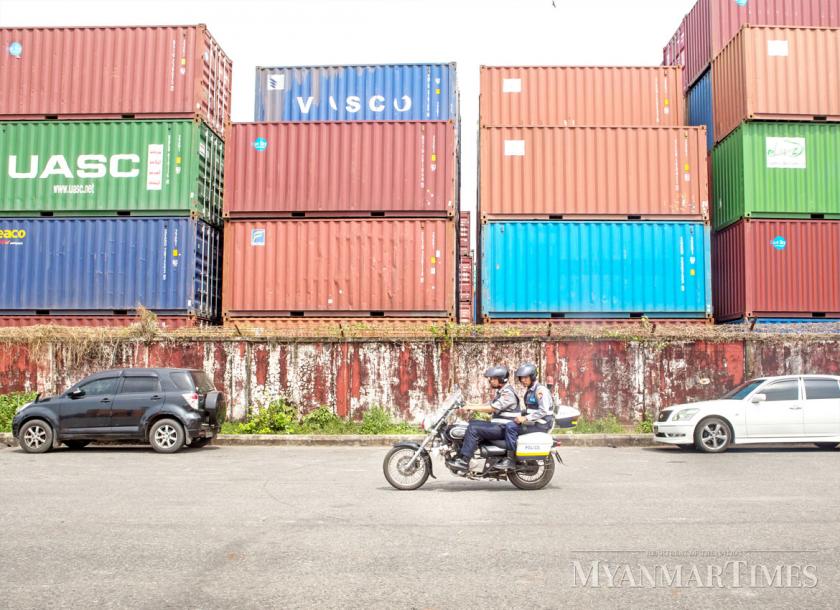Ministry of Commerce (MOC) is drafting the new trade laws to protect local producers while promoting exports of domestically produced goods
23 เมษายน 2562
The Ministry of Commerce (MOC) is drafting new trade laws to safeguard local producers while promoting exports of domestically-produced goods, Minister of Commerce U Than Myint said.
Due to the lack of investments and technology, Myanmar producers face stiff competition from their regional peers, who are able to manufacture at faster speeds and lower costs and produce higher quality goods.
As such, the legislation, drafted in collaboration with the World Bank and German development agency GIZ, will include a new Safeguard Law on Increased Import and Antidumping and Countervailing Law. The laws aim to safeguard domestic manufacturers from cheap imports and support demand for locally-made products.
At the same time, the government is also raising efforts to promote economic growth through exports by adding new priority sectors to its National Export Strategy (NES).
Gems and jewellery, the digital economy, fruits and vegetables, agricultural product-based food products and industrial art products have been added to the NES 2020-2025, which replaces the first NES 2014-2019, according to the MOC.
Notably, the new sectors appear to involve higher value-add and selected across a wider spectrum of industries compared to the current NES, which prioritises raw commodities including rice, pulses, oilseed crops, marine products, textile and garments and wood and wood products.
In an exclusive interview with The Myanmar Times last month, Arancha Gonzalez, executive director of the International Trade Centre, said Myanmar has the potential to become a value-add exporter of goods.
She added though, that the country’s current situation is very weak, contrary to its real potential. The main thing to do is to help support local small and medium enterprises and to keep abreast with international demand trends. The government’s policies, rules and regulations, financial support systems and other practices have to be realistic and aligned with the economy’s needs.
Three things need to be improved when it comes to Myanmar’s exports - value-addition, expertise and innovation, Ms Gonzalez said.
In the first six months of this financial year, the country’s export earnings totaled some US$8 billion, which is up by more than US$650 million from the same period last year, buoyed by overseas demand for locally produced garments and despite lower exports of rice, beans and pulses.
Meanwhile, spending on imports rose to US$8.9 billion during the same period, resulting in a trade deficit of more than US$100 million, according to data from the MOC.
(The Myanmar Times: https://www.mmtimes.com/news/trade-laws-protecting-local-producers-now-being-drafted-moc.html )











